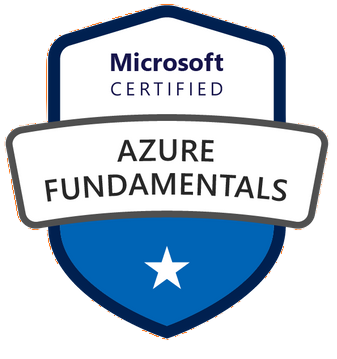Base Cost
Resource Types – All Azure services (resources) have resource-specific pricing models. Typically consisting of one or more metrics.
Services – Azure specific offers (Enterprise, Web Direct, CSP, etc.) have different cost and billing components like prepaids, billing cycles, - discounts, etc.
Location – running Azure services vary between Azure regions.
Bandwidth – network traffic when uploading (inbound/ingress) data to Azure or downloading (outbound/egress) from Azure.
Savings
Reserved Instances
Hybrid Benefits
Azure Reservations
Purchase Azure services for 1 or 3 years in advance with a significant discount-
Reserved instances – Azure Virtual Machines.
Reserved capacity – Azure Storage, SQL Database vCores, Databricks DBUs, Cosmos DB RUs.
Software plans – Red Hat, Red Hat OpenShift, SUSE Linux, etc.
Reservations are made for 1 or 3 years.
Azure Spot VMs
Purchase unused Virtual Machine capacity for significant discount-
How it works
Significant discount for Azure VMs.
Capacity can be taken away at any time.
Customer can set maximum price after discount to keep or evict the machine.
Best for interruptible workloads (batch processing, dev/test environments, large compute workloads, non-critical tasks, etc.)
Hybrid use Benefit.
Use existing licenses in the cloud-
Use existing licenses in the Azure-
Windows Server
Azure VM
RedHat
Azure VM
SUSE Linux
Azure VM
SQL Server
Azure SQL Database
Azure SQL Managed Instance
Azure SQL Server on VM
Azure Data Factory SQL Server Integration Service.
Tools
Pricing calculator – estimate the cost of Azure services-
Select service.
Adjust parameters (usage).
View the price.
Total Cost of Ownership (TCO) calculator – estimate and compare the cost of running workloads in datacenter versus Azure-
Define your workloads.
Adjust assumptions.
View the report.
Azure Cost Management
A centralized service for reporting usage and billing of Azure environment
Self-service cost exploration capabilities
Budgets & alerts
Cost recommendations
Automated exports
Minimizing Costs in Azure
Azure Pricing Calculator to choose the low-cost region-
Good latency.
All required services are available.
Data sovereignty/compliance requirements.
Hybrid use benefit and Azure Reservations
Azure Cost Management monitoring, budgets, alerts and recommendations.
Understand service lifecycle and automate environments.
Use autoscaling features to your advantage.
Azure Monitor to find and scale down underutilized resources.
Use tags & policies for effective governance.
SLA
Service Level Agreement (SLA) is a formal agreement between a service provider and a customer.
SLA is a promise of a service’s availability (uptime & connectivity). Availability is a measure of time that a service remains operational.
Each Service has its own SLA.
Ranges from 99% to 99.999%.
Free services typically don’t have an SLA.
Broken SLA means service credit return (discount).
Formulas
Logical AND - adding dependency.
Availability of S1 AND S2 = Availability(S1) * Availability(S2)
Scenario - Azure website with SQL backend DB
Availability = Availability(web) app * Availability(SQL)
Availability = 99.95% * 99.95%
Availability = 0.9995 * 0.9995
Availability = 0.99900025
Availability ~ 99.9%
Logical OR - adding redundancy.
Availability of S1 OR S2 = 100% - ( Unavailability(S1) * Unavailability(S2) )
Scenario - Two redundant web apps behind a load balancer
Availability(both-web) = 100% - ( Unavailability(web1) * Unavailability(web2) )
Availability(both-web) = 100% - ( 0.05% * 0.05% )
Availability(both-web) = 1 – ( 0.0005 * 0.0005 )
Availability(both-web) = 1 – 0.00000025
Availability(both-web) = 0.99999975
Availability(both-web) ~ 99.9999%
Key Items
Formal agreement between Microsoft & the customer.
Calculated as a percentage of service availability (uptime & connetivity) (a promise).
Breaking the SLA provides a discount from the final monthly bill (Service Credit).
Higher tier services offer better SLAs.
Free services typically have no SLA (0% SLA).
Preview services have no SLA.
Composite SLA is a combined SLA of all application components.
Service Lifecycle
Every service in Azure follows its own service lifecycle
Public preview is a ‘beta’ stage of the service available to general public use
Features can also be in preview stages
Designed for testing, not production solutions
General availability is a ‘production’ release of the service
Public Preview Key Info
No SLA.
Some services have no support coverage.
Limited region availability.
Limited functionality.
Pricing changes.
Direction changes.
Azure Portal Previews (https://preview.portal.azure.com)

EmoticonEmoticon